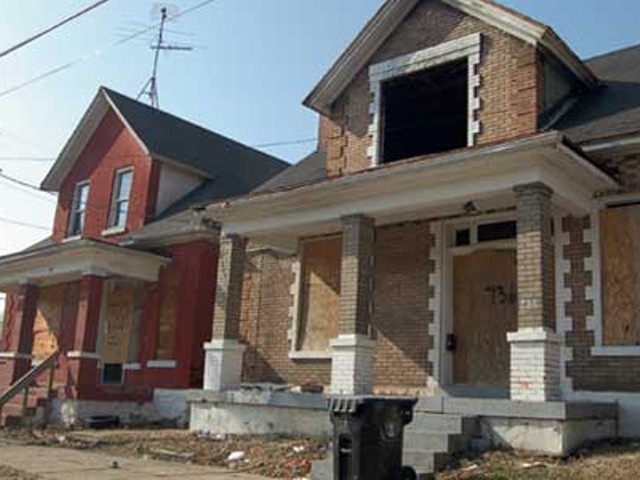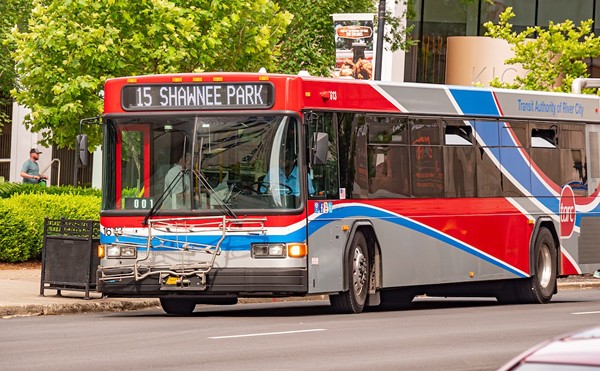Dozens of Somali Bantu teens are shooting basketballs, doing homework online, and gossiping near a portable stereo on a recent afternoon at the Arcadia after-school program, which almost did not make it to the new year.
Well, technically, it didn’t.
The Southeast branch of the YMCA recently took over Arcadia Community Center, helping the organization survive an ongoing financial storm affecting nonprofits throughout the city. After closing its doors for several months last year, Arcadia reopened in October, with the YMCA assuming oversight of the immigrant youth-focused organization. The new arrangement is being touted as a creative solution to a financial crisis, a model other local nonprofits have followed.
Due to a sluggish economy, Arcadia — like most nonprofits — has experienced a decrease in donations. Meanwhile, the center’s client base has increased. Staff and service cuts could not make up the difference, and Arcadia temporarily shut down. In response, Metro United Way stepped in, hoping to save one of the few local organizations focused on assisting refugee children. Metro United Way offered financial assistance and spearheaded the search for a partner that could help Arcadia.
But it wasn’t just a matter of money. Arcadia needed a partner willing to embrace foreign cultures and accommodate unconventional practices, like late-night home visits, sitting on people’s floors, and attending community meetings conducted in a foreign language. Jennifer Hurley, Arcadia’s director since 2005, says it’s all a part of treating clients as partners, not passive subordinates.
When Metro United Way suggested the YMCA as a partner, Hurley says she could tell Greater Louisville YMCA President Steve Tarver, and Tom Wharton, executive director of its Southeast branch, “got it.”
“What really set us over the edge is one Saturday, Steve and Tom came out to the old community center in jeans and T-shirts and met with elders, and sat with them for several hours to gauge their permission and acceptance,” Hurley says. They also were able clarify YMCA’s mission and operations, including assurances that they would not try to convert the Muslim Somalis, even though the “C” in YMCA stands for “Christian.”
YMCA has agreed to support Arcadia for two years, during which time Hurley will work toward making the community center financially self-sustaining once again.
It’s a strategy that worked for the Louisville Nature Center, a similarly sized grassroots effort that operated under an agreement with the Louisville Zoo for several years and was able to become independent again in 2008. During that time, the nature center was able to build up staff, expertise and resources.
Arcadia Community Center now is located in the Safe Place building on Crittenden Drive, part of the Southeast YMCA. Safe Place operates a 24-bed shelter for children ages 12 to 17, in addition to offering homeless outreach and other programs. Since Arcadia moved in, about 70 refugee and immigrant teens utilize the gym and lounge area that had gone largely unused by Safe Place clients. An industrial kitchen and daily food service are an improvement over the donation-based dinners Hurley and other staff used to prepare in an apartment kitchenette. The new arrangement also provides Arcadia with support for grant writing, marketing, accounting and human resources, and the teens will be able to participate in organized sports through the YMCA.
When it started in 2001, Arcadia existed only in Arcadia Park Apartments among a community of refugees who organized themselves in an effort to navigate their new, foreign home. Hassan Muya, president of the Somali Bantu Community of Kentucky, says the teens felt they had been abandoned when their center closed.
“The children were kind of confused, frustrated,” he says. “They couldn’t find a place to (hang out). They stayed home, sometimes going to other community centers, (but) they were not getting what they were getting at Arcadia.”
Matt Reed, executive director of Safe Place, says he has been “blown away” by the level of appreciation the children have expressed. Logistics are still being worked out, but he feels his staff — already used to helping youth deal with tough problems and non-traditional lifestyles — is well equipped to work with refugees.
Reed and Hurley are looking for opportunities for all of the young people to interact. The first opportunity might come through the creation of a mural depicting how Arcadia grew and moved to the YMCA, as well as the history of Safe Place.





